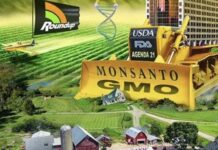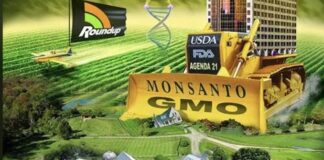While the WHO guidelines for Europe strictly prohibit added sugars or sweeteners in any food for children under three, no specific directives have been issued for other regions. Nonetheless, researchers argue that the European guidelines hold global significance.
Despite the international guidelines aimed at preventing obesity and chronic diseases, Nestlé, the world’s largest consumer goods company, adds sugar and honey to infant milk and cereal products sold in many poorer countries, according to a report.
A report by the Swiss investigative organisation Public Eye reported by the Guardian has revealed that samples of Nestlé’s baby-food products sold in Asia, Africa, and Latin America were sent to a Belgian laboratory for testing and the results showed added sugar in the form of sucrose or honey in samples of Nido, a follow-up milk formula brand intended for infants aged one and above and Cerelac, a cereal aimed at children aged between six months and two years.
In contrast, Nestlé’s main European markets, including the UK do not contain added sugar in formulas for young children, the report stated. While some cereals aimed at older toddlers contain added sugar, products targeted at babies between six months and one year are sugar-free.
Laurent Gaberell, Public Eye’s agriculture and nutrition expert emphasised the importance of ending these double standards, stating that Nestlé should stop adding sugar to all products for children under three years old worldwide.
Obesity is a growing concern in low- and middle-income countries, with the number of overweight children under five in Africa increasing by nearly 23% since 2000, according to the World Health Organization. Globally, more than 1 billion people are living with obesity.
While the WHO guidelines for Europe strictly prohibit added sugars or sweeteners in any food for children under three, no specific directives have been issued for other regions. Nonetheless, researchers argue that the European guidelines hold global significance.
In the UK, recommendations advise against offering food with added sugars to children under four, citing concerns such as weight gain and tooth decay. Similarly, the United States government guidelines discourage the consumption of foods and beverages with added sugars for those younger than two.
A Nestlé spokesperson was quoted by The Guardian saying that the company believes in the nutritional quality of our products for early childhood and prioritise using high-quality ingredients adapted to the growth and development of children.
She said that within the “highly regulated” category of baby food, Nestlé always complied “with local regulations or international standards, including labelling requirements and thresholds on carbohydrate content that encompasses sugars” and declared total sugars in its products, including those coming from honey, she told The Guardian.
Variations in recipes depended on factors including regulation and availability of local ingredients, she said.
The company has reduced the total amount of added sugars in its infant cereals portfolio by 11% worldwide over the past decade, she added and continued to reformulate products to reduce them further.
She further told The Guardian that sucrose and glucose syrup were being phased out of “growing-up milks” aimed at toddlers worldwide.
From firstpost.com
Disclaimer: We at Prepare for Change (PFC) bring you information that is not offered by the mainstream news, and therefore may seem controversial. The opinions, views, statements, and/or information we present are not necessarily promoted, endorsed, espoused, or agreed to by Prepare for Change, its leadership Council, members, those who work with PFC, or those who read its content. However, they are hopefully provocative. Please use discernment! Use logical thinking, your own intuition and your own connection with Source, Spirit and Natural Laws to help you determine what is true and what is not. By sharing information and seeding dialogue, it is our goal to raise consciousness and awareness of higher truths to free us from enslavement of the matrix in this material realm.
 EN
EN FR
FR


























